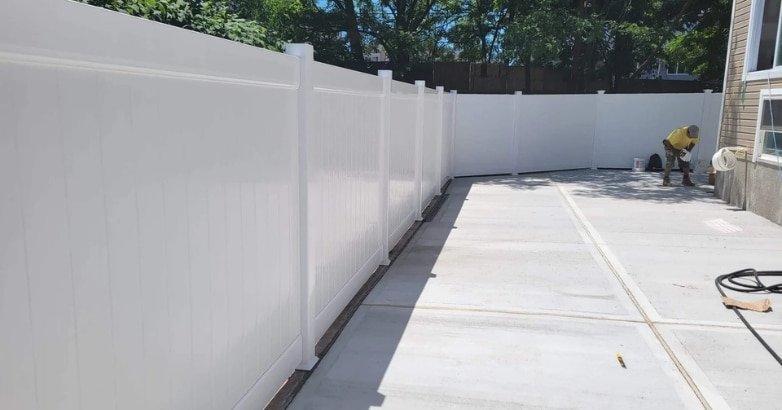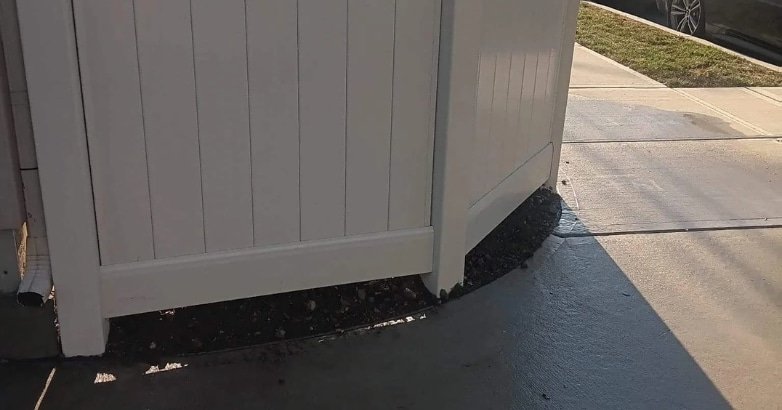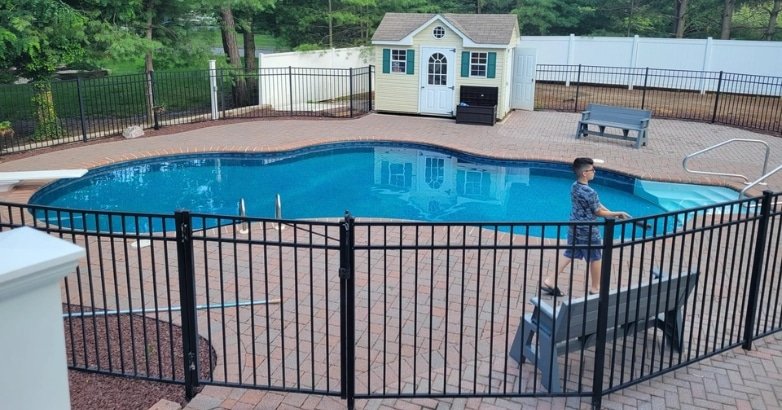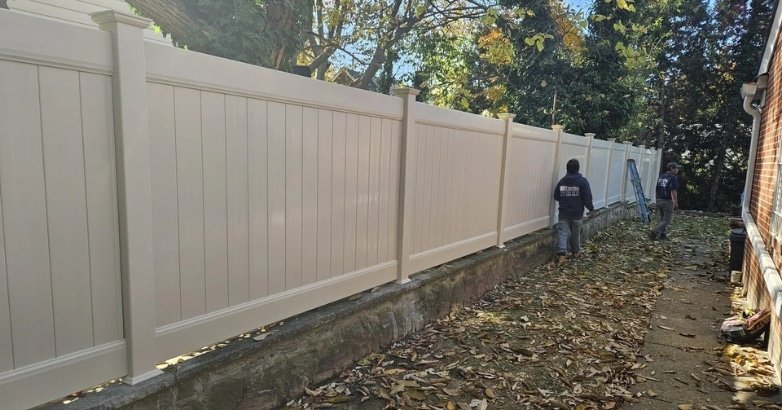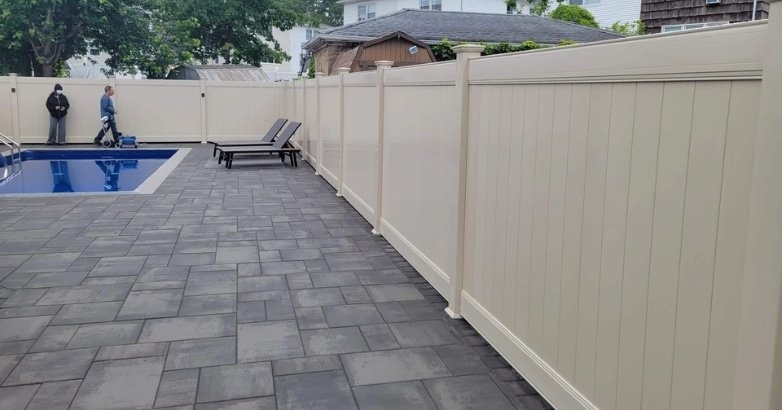Thinking about installing a fence in NYC or NJ? Before you start, make sure you know the fencing regulations in New York City and New Jersey. Avoid fines and disputes by understanding height limits, permits, and material rules!
Fencing regulations in New York City and New Jersey vary by location, with restrictions on height, materials, and permits. NYC typically allows 4-foot front yard fences and 6-foot backyard fences, while NJ rules differ by town. Some fences require permits, especially if they exceed height limits or are near property lines. Pool fences have specific safety requirements, and historic districts may have additional guidelines. Checking local zoning laws before installation ensures compliance and avoids costly mistakes.
Want to install the perfect fence without legal hassles? Keep reading for a breakdown of key fencing laws, permit tips, and expert advice to keep your project on track!
1. Understanding Local Zoning Laws
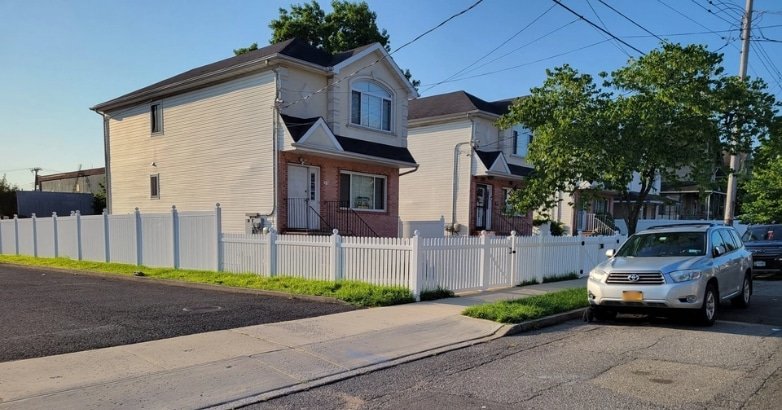
Before installing a fence in New York City or New Jersey, it’s essential to understand local zoning laws, which regulate fence height, placement, and materials. These laws are designed to maintain neighborhood aesthetics, ensure safety, and prevent disputes between neighbors.
New York City
In New York City, fences in front yards typically cannot exceed 4 feet, while backyard fences can go up to 6 feet without special permits. However, corner properties may have additional height restrictions to maintain clear visibility for drivers and pedestrians.
New Jersey
The regulations vary by town. Some municipalities allow fences up to 6 to 8 feet in backyards, while front yard fences are often restricted to 3 to 4 feet. Additionally, some areas require fences to be set back a few inches from property lines.
To avoid fines or legal trouble, always check with your local zoning office before starting your fencing project to ensure full compliance.
2. Permit Requirements: Do You Need One?
Before installing a fence in New York City or New Jersey, it’s important to determine if you need a permit. Permit requirements vary based on fence height, location, and materials. Failing to obtain the necessary approval could lead to fines, removal orders, or legal complications.
New York City
Fences generally do not require a permit if they stay within the allowed height limits—4 feet in front yards and 6 feet in backyards. However, if your fence exceeds these limits or is made of masonry, concrete, or other special materials, you may need approval from the Department of Buildings.
New Jersey
The permit rules differ by town. Some municipalities require permits for fences above 6 feet, especially near property lines or roadways. If you’re unsure, check with your local zoning office to ensure your fencing project complies with all legal requirements.
3. Fence Height Restrictions
Fence height restrictions are a key factor when installing a fence in New York City or New Jersey. Local regulations dictate how tall your fence can be based on its location on your property. Ignoring these rules could result in fines or even the need to modify or remove your fence.
New York City
The maximum fence height is typically 4 feet for front yards and 6 feet for backyards. If you want a taller fence, you may need a variance or special permit. Corner lots often have additional restrictions to maintain visibility for traffic safety.
New Jersey
In New Jersey, height limits vary by municipality. Most towns allow backyard fences up to 6 or 8 feet, while front yard fences are usually restricted to 3 to 4 feet. Some areas also have setback requirements, meaning your fence may need to be placed a certain distance from the property line. Always check with your local zoning office before installation.
4. Approved Fence Materials
Choosing the right fence materials is just as important as following fence height restrictions and permit requirements. Fencing regulations in New York City and New Jersey outline specific rules on approved materials to ensure safety, durability, and neighborhood aesthetics.
New York City
The commonly approved materials include wood, vinyl, aluminum, and chain-link. However, fences made of barbed wire, razor wire, or electrified materials are generally prohibited, especially in residential areas. If you plan to install a stone or concrete fence, you may need a permit from the Department of Buildings.
New Jersey
The material regulations vary by town, but wood, vinyl, metal, and chain-link fences are widely accepted. Some historic districts may have stricter rules to maintain architectural consistency. If your fence is for a pool or commercial property, it may need to meet additional safety standards.
Before purchasing materials, check with your local zoning office to ensure compliance with all fencing regulations.
5. Property Line Considerations
Installing a fence in New York City or New Jersey requires careful attention to property lines to avoid disputes with neighbors and legal issues. Understanding where your property ends and your neighbor’s begins is crucial before starting any fencing project.
New York City
In New York City, fences are typically required to be built within your property boundaries. If you install a fence directly on the property line, you may need written consent from your neighbor. It’s always best to get a land survey to confirm your exact property limits before installation.
New Jersey
The rules vary by town, but many municipalities require fences to be set back a few inches to a foot from the property line. If you plan to share a fence with a neighbor, a boundary agreement can help avoid future conflicts.
To ensure your fence installation complies with local regulations, check with your zoning office and communicate openly with neighbors before starting your project.
6. Special Rules for Historic Districts
If you live in a historic district in New York City or New Jersey, fencing regulations can be stricter than standard zoning laws. These areas have special guidelines to preserve their architectural character and historical significance. Installing a fence without approval could result in fines or required modifications.
New York City
The Landmarks Preservation Commission (LPC) oversees fencing regulations in designated historic districts. Homeowners may need to submit plans for review to ensure the fence matches the style, materials, and aesthetics of the area. Traditional materials like wrought iron, wood, and stone are often required, while modern options like vinyl or chain-link may be restricted.
New Jersey
In New Jersey, historic districts are managed at the local level, with zoning boards enforcing regulations. Fences may need to reflect the area’s historic charm, and approval from a historical commission may be necessary. Before installing a fence in a historic district, always check local guidelines to ensure compliance.
7. Pool Fencing Requirements
If you have a swimming pool in New York City or New Jersey, installing a proper pool fence is not just a recommendation—it’s a legal requirement. Fencing regulations in New York City and New Jersey are in place to enhance safety, especially for children and pets, and failing to comply can result in fines or liability issues.
New York City
The pool fences must be at least 4 feet high, with self-closing, self-latching gates that open outward. The fence must have no large gaps to prevent children from squeezing through. Additionally, above-ground pools with sides over 4 feet may use the pool walls as a barrier if the ladder is removable or gated.
New Jersey
In New Jersey, pool fencing laws follow similar safety guidelines, but some towns require fences to be at least 5 feet high. Homeowners should check with their local zoning office to ensure their pool fence meets all state and municipal regulations.
8. Fence Maintenance Laws
Owning a fence in New York City or New Jersey comes with responsibilities beyond installation. Local regulations require homeowners to maintain their fences to ensure safety, structural integrity, and neighborhood aesthetics. Ignoring maintenance laws can lead to fines or mandatory repairs.
New York City
The property owners must keep their fences in good condition, meaning no rotting wood, rusted metal, or leaning structures. If a fence becomes hazardous or obstructs public pathways, the city may issue a violation notice requiring immediate repairs.
New Jersey
Fence maintenance is typically enforced at the municipal level. Many towns require homeowners to keep fences clean, structurally sound, and free from graffiti or overgrown vegetation. If a fence falls into disrepair and becomes a safety hazard, the local zoning office may demand repairs or removal.
To stay compliant, regularly inspect, clean, and repair your fence, ensuring it meets local fencing regulations at all times.
9. Neighbor Disputes: What to Do?
Disagreements over fences in New York City or New Jersey can arise between neighbors, especially regarding property lines, fence height, or maintenance responsibilities. Resolving these issues properly can prevent legal trouble and maintain good neighborly relations.
New York City
In New York City, fence disputes often involve property boundaries. If a neighbor claims your fence is encroaching on their land, a property survey can clarify the exact boundary lines. Open communication and, if needed, mediation services can help resolve conflicts before they escalate.
New Jersey
The local zoning laws typically dictate setback requirements and shared fence responsibilities. If a neighbor objects to your fence’s appearance or placement, checking local fencing regulations can confirm compliance. When disputes persist, consulting a real estate attorney or local zoning office can help clarify legal obligations.
To avoid issues, always communicate with neighbors before installing a fence and ensure it follows fencing regulations in New York City and New Jersey to prevent future conflicts.
10. Hiring a Professional Fence Contractor
Installing a fence in New York City or New Jersey is a significant investment, and hiring a professional fence contractor ensures the job is done right. A skilled contractor understands local fencing regulations, helping you avoid costly mistakes or legal issues.
New York City
Contractors must be licensed and insured to perform fencing work. They should be familiar with zoning laws, permit requirements, and height restrictions. Before hiring, check online reviews, ask for references, and verify their credentials with the Department of Consumer Affairs.
New Jersey
Hiring a certified fence installer ensures compliance with municipal regulations and property line rules. Many towns require permits for new fences, and a knowledgeable contractor can handle the paperwork for you. Always request a detailed contract outlining materials, costs, and project timelines.
By choosing an experienced fence contractor like JR Fencing with an experienced team ensure a smooth process, from securing permits to selecting the best materials, saving you time and hassle.
With JR Fencing, you get more than just a fence—you get quality, reliability, and exceptional service tailored to your property’s needs. Contact us today!
Fencing Regulations in New York City and New Jersey: Stay Compliant and Stylish!
Understanding fencing regulations in New York City and New Jersey is key to a smooth and successful installation. Whether you’re enhancing security, boosting curb appeal, or ensuring privacy, following local laws will save you from unnecessary fines and disputes.
Before you start digging, check your local zoning laws, secure necessary permits, and consult a professional if needed. With the right approach, you can enjoy a beautiful and legal fence that complements your property for years to come!
Need help with your fencing project? Contact a trusted local fencing expert to ensure compliance and quality craftsmanship.



